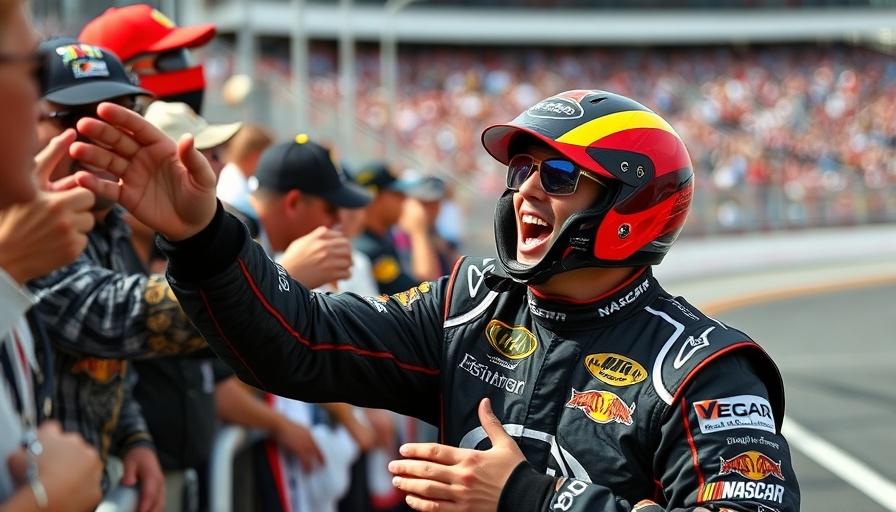
Redefining Race Dates: A Bold Shift for NASCAR?
As the summer NASCAR season continues to unfold, prominent figures like Dale Earnhardt Jr. and his longtime spotter, TJ Majors, have initiated a compelling debate on the sport's scheduling, particularly concerning the NASCAR races at Daytona International Speedway and Atlanta Motor Speedway. Both tracks hold a unique historical significance in the racing community, but the evolving dynamics of race dates may demand a new look.
Transitioning from Tradition: The Case for a New Schedule
The Coke Zero Sugar 400 at Daytona was once the Firecracker 400, a high-energy race traditionally held over the July Fourth weekend. This shift now positions it as the regular season finale, which has its implications on playoff standings and fan engagement. Dale Jr. emphasizes the need to adapt, suggesting that while Daytona's traditional date was iconic, the tourism impact of the event’s relocation should not be overlooked.
Majors supports this sentiment, indicating that Atlanta might serve better as a decisive regular-season closer. His view reflects a push to maintain the excitement leading to playoff thresholds, suggesting Atlanta's unique track dynamics allow for varied racing strategies that can dramatically influence outcomes.
Why Atlanta Might Have the Upper Hand
Atlanta's racing characteristics align more closely with modern expectations of what a final race should accomplish. Unlike Daytona, where pack racing often leads to unpredictable crashes, Atlanta offers drivers more control over their strategies, resulting in a more engaging race for the audience. Majors explains that this flexibility could lead to thrilling finishes without the chaos that can mar the last moments at Daytona.
Historical Implications and Future Reflections
Looking back, Daytona's shift from July Fourth was initially met with skepticism. After all, it’s one of America’s most cherished holidays, ideally suited for a race that embodies the spirit of speed and competition. However, as local businesses thrived due to an extended tourism season, the decision proved beneficial. It’s a true testament to how adapting to changing times can generate new revenue streams without sacrificing the sport’s essence.
The Fans' Perspective: What Do You Want?
This debate isn’t solely about track dynamics or economic benefits; it also revolves around fan engagement. Supporters of both venues have passionate opinions on what they want from their racing experience. The lively discussions on Dale Jr.'s podcast reflect the broader sentiment within the NASCAR community. Fans value the traditions but also crave innovation in how the racing calendar unfolds. The need to balance nostalgia with modern demands is at the heart of this dialogue, highlighting the diverse priorities of racing fans everywhere.
Making a Case for Change: What’s Next for NASCAR?
NASCAR stands at a crossroads. Should it return to its roots, or should it pave a new path that could redefine racing for future generations? Positions like those of Dale Jr. and Majors underscore the necessity of discussions around scheduling changes. Whether one supports a move to shift Atlanta as the final race of the regular season or maintain the status quo, the dialogue enriches the sport’s narrative. Fans and stakeholders alike must engage in these discussions, as the outcomes will shape the future of NASCAR.
Ultimately, changing race dates is not just about logistics; it embodies a larger shift in the culture of NASCAR racing. It’s about evolution—how to honor the past while keeping an eye on the future and ensuring that every race captures not only the participants’ spirits but also resonates with the audience who lives for the thrill of the track.
After considering the various perspectives, it’s clear that discussion is just the starting point. NASCAR fans and racers alike have an opportunity to influence the evolution of their beloved sport. It’s time to make your voices heard!
 Add Row
Add Row  Add
Add 




Write A Comment